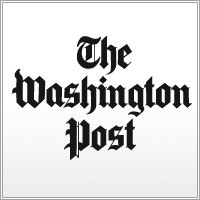Reprint from The Washington Post
Two months before Donald Trump is sworn in as president, the nation’s second highest court on Monday considered how close protesters can get to the inaugural parade along Pennsylvania Avenue.
Free speech advocates told the court that the sidewalks on the route, including in front of Trump’s luxury hotel and at Freedom Plaza, should not be shut-off to demonstrators.
The case before the U.S. Court of Appeals for the D.C. Circuit was filed long before Trump was elected and is the latest chapter in ongoing litigation over National Park Service regulations that determine the location of inauguration-day demonstrations.
But challengers said the case has heightened significance at a time when thousands of people already are protesting Trump’s election in cities throughout the country.
“People are coming to Washington, D.C., on Inauguration Day to exercise their free speech rights in opposition to racism, misogyny and bigotry. But the government wants to stage-manage democracy,” said Mara Verheyden-Hilliard, executive director of the nonprofit Partnership for Civil Justice Fund who argued the case on Monday.
Government lawyers told the court that the Park Service has long set aside space for bleachers on the parade route for the incoming president’s organization to plan a day of “national celebration.”
Assistant U.S. Attorney Marina Braswell told the court that protesters will have “ample prime alternatives” to engage in First Amendment activities along Pennsylvania Avenue on January 20.
The Presidential Inaugural Committee, a private entity, is responsible for planning most of the inaugural celebration activities, including the parade, and is controlled by the president-elect.
The case was heard by three Obama appointees — Judges Patricia Millett, Cornelia T.L. Pillard and Sri Srinivasan — who had tough questions for both sides.
The judges seemed skeptical that the president-elect was not entitled to at least a limited amount of reserved seating for friends and supporters.
“It’s their party. It’s their parade. It’s their event,” Millett said.
Verheyden-Hilliard responded that it was not a “private party” and that the Park Service was giving a private, partisan fundraising organization too much control over the location of demonstrations on public land and stifling free speech.
She said she hopes the court will rule on the constitutionality of the regulations well in advance of Inauguration Day so that “all people will have equal access to that space.”
Last January, U.S. District Judge Paul Friedman sided with the government, finding that the regulations are a “modest restriction of space” and still left plenty of other locations for protest.
At issue for the appeals court is whether the actions of the president-elect’s committee equate to “government speech” — or private speech, which would require a higher-standard of scrutiny.
Friedman found that “the Inauguration Ceremony and Parade are ‘closely identified in the public mind with’ the United States government” and therefore government speech.
“The government decides who sits in those bleachers,” Braswell said Monday. “The [inauguration committee] is an arm of the president.”
The appeals court judges questioned how the committee’s decisions could be characterized as “government speech” when it is a private entity choosing who sits where along the parade route even before the new president takes office.
Pillard described the characterization of it as “government speech,” a “very strange argument” especially because the ticketed-seating opens to the general public if the bleacher seats are not claimed 10 minutes before the parade begins.

